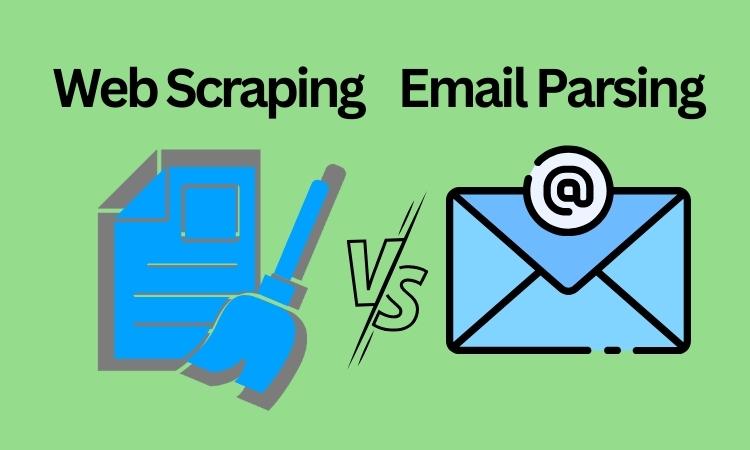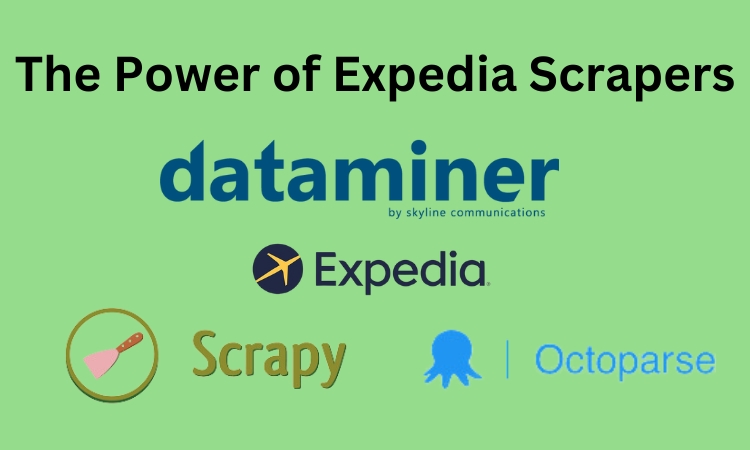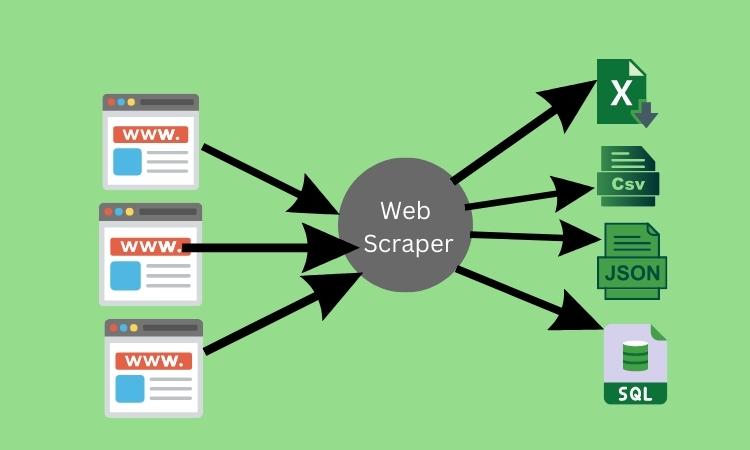Web Scraping Vs Email Parsing
Web scraping vs Email parsing both use artificial intelligence and machine learning for processing unstructured data. The only difference is that web scraper targets the HTML of the websites. Whereas, an email parser extracts data from emails.
With the evolution of technology, data analysis has also become very important for better businesses. For instance, you might be thinking of extracting data like stock prices, company details, product prices, sports stats, etc. So that you can take a wise decision about your business. For gathering this data in bulk, you would need a web scraper or an email parser.
Web scraping vs Email parsing both use artificial intelligence and machine learning for processing unstructured data. The only difference is that web scraper targets the HTML of the websites. Whereas, an email parser extracts data from emails.
What is Email Parsing?
Email parsers are software that let you extract important data from emails in the inbox. Hence making data gathering easier by avoiding manual data entry.
Using Gmail, Outlook, and other emailing platforms. You can configure email parsers for gathering specific data from all the emails. It lets you convert unstructured data in emails to easy-to-understand structured data.
Some email parses also let you extract data from email headers and the body. Advanced parsers can even get data from email attachments like PDF, Word, or excel files.
If you want a custom web scraping or data mining solution, Alnusoft is currently offering Discounts.
<<Click here to get a free quote today>>
Structured Versus Unstructured Email Data
Structured email parsers
Structured email parsers extract data that are always in the same format. Typically, structured emails are sent by machines. A parser can then easily scrape off the data that is labeled or defined. This allows the parser to find those defined pieces of data, available in specific parts of the email.
Unstructured email parsers
Unstructured mail is sent by humans to one another. They are free-form emails and do not have a proper format. These parse focuses on extracting data that is not always in the same place. . They only look for patterns in the email that defines the important data.
Unstructured emails represent a bulk of email communication. Hence there is a lot of data to be mined. And these modern email parsers can do it very efficiently.

How Email Parsing Can Benefit Your Business
Approximately 124 billion business emails are sent every day. For understanding, an office worker gets an average of 3600 emails every month. Hence, your email inbox is a valuable source of information for both personal and professional reasons. It carries your personal details, customer data, partners’ information, and order details too.
With so many emails coming every day, there is a data entry task that you have to perform daily. Well, you can put this time to use working on better things. Use an email parser to do these minor tasks for you.
Email communication is normally unstructured. It is just plain text, typed by humans. It can be difficult to locate and extract valuable data from an email. That’s where an email parser, a specialized software solution becomes helpful.
Traditional email parsers focus on structured emails which have data in the same place. Advancement in artificial intelligence has made complex email parsing easy. It can extract email signatures to customer relationship management systems without human intervention.
Related: Web Scraping Golang vs Python
What Can I Use an Email Parser For?
An email parser can be used for many purposes. Some of these are.
Email Signatures (Unstructured)
Usually, email signatures are the contact details, you put at the bottom of the emails. These signatures normally include a person’s title, phone number, and location. Since every sender has a different email signature. You need a smart email parser that can locate and extract the signature. No matter where the signature is placed in the email.
Website Leads (Structured)
If you are getting leads from your websites. You can email them to a single emailing box. Then you can use an email parser for capturing your leads into a CRM system.
Order details (Structured)
By using an email parser, you can extract the details of orders from the emails. Then send this data into your order management system.
What is Web Scraping?
Web scraping or data extraction is the process in which structured web data is extracted automatically. A screen scraper only extracts the pixels on the screen. Whereas web scraper scrapes the HTML code and stores data in the database.
Some of the everyday use cases of web scraping are market research, and price monitoring. Along with lead generation, price intelligence, news monitoring, price intelligence, etc.
Besides, a web scraper can copy and paste website content. It can also search and extract names, company titles, and executives’ names from a website for marketing purposes. In general, web scraping is done by both, individuals and businesses. It will search the big data to make smart decisions.
How Web Scraping Can Benefit Your Business
Web scraping is valuable for businesses. It will give you structured web data from any website that has data publicly available.
Tech-savvy companies, extract data for streamlining operations, enhancing user experience, and taking decisions.
What To Do With Web Scraping?
You can use web scraping for a variety of purposes. Some of these are as follows. including:
Price Monitoring
Price intelligence is an important web scraping use case. You can extract data like pricing information of similar products from e-commerce websites. These prices are turned into intelligence, making better marketing and product pricing decisions.
Market Research
To be at the top of the game, your market research should have accurate data and information regarding your competitors. Using web scraping, you can generate high volume, good quality, and insightful data. They will help fire up your market analysis and business decisions.
Real Estate Analytics
Tech-savvy real estate business use web scraped data for increasing their property value. They monitor the rates of vacancy, estimate the rental yields, and understand marketing directions. Hence, increasing their business value.
Lead Generation
Digital marketers use web scraped data for accessing structured leads from websites. It will generate traffic and increase leads too.
Is email parsing like web scraping?
Yes, email parsing is similar to web scraping. Both email parsing and web scraping use machine learning for processing unstructured data.
They both scrape data. The only difference is that web scraper extracts data from HTML websites. Whereas the email parser scrapes data from the emails. You can parse the email’s header text, body content, and even the signature in the emails. The data you require from the emails are sent to the specified location, as per your email parser rules.
Conclusion
To put it in a nutshell, web scraping and email parsing both are invaluable means of processing unstructured web and email data. Hence, automating the inbound important data to your CRM.







